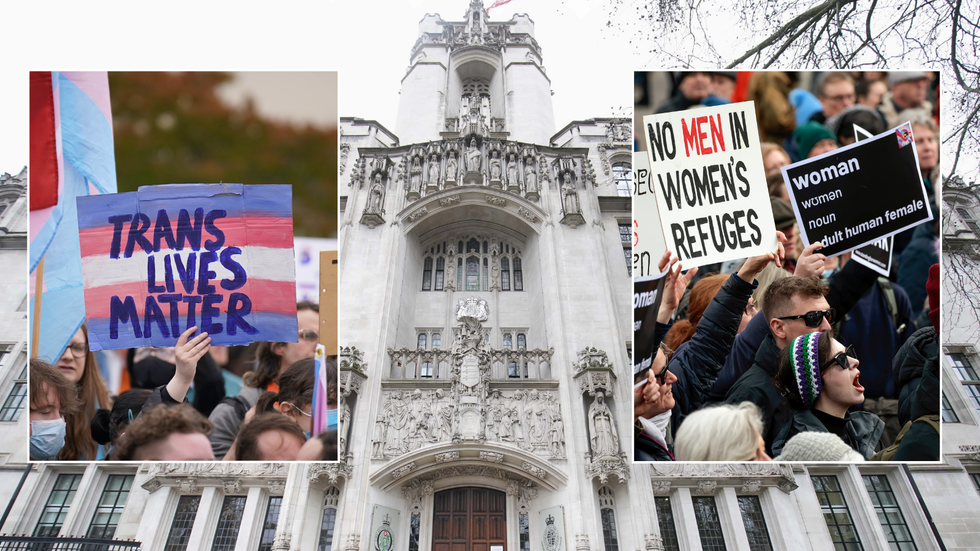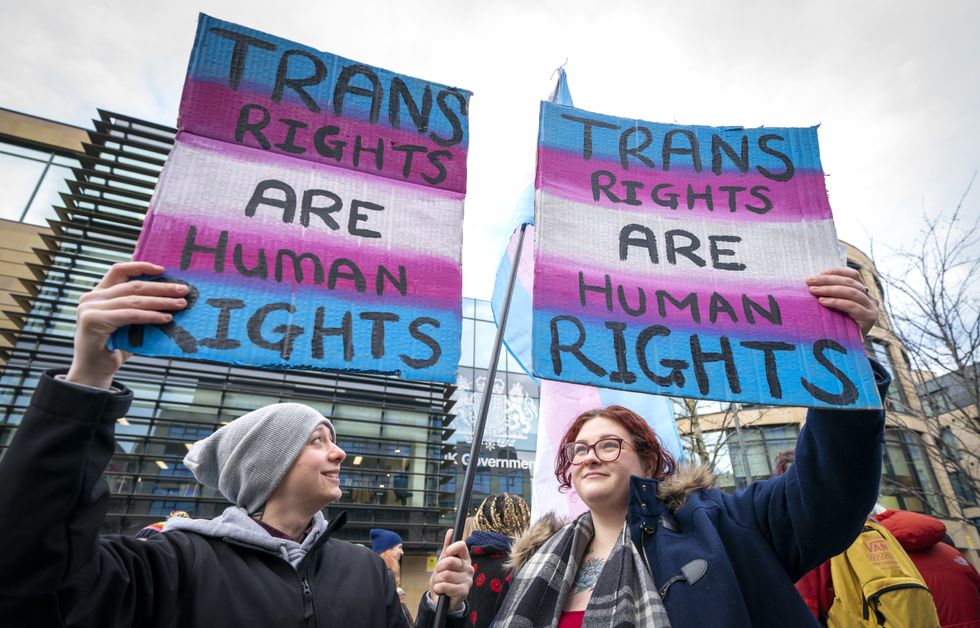'This is CORRUPT!': Guests CLASH as JK Rowling BLASTS Lisa Nandy over backing trans athletes
GB News
Campaigners argue that the definition of what a woman is under the Equality Act will be rendered meaningless if they lose
Don't Miss
Most Read
Trending on GB News
Judges at the Supreme Court are to make a landmark ruling on whether “trans women are women” under the 2010 Equality Act as the hearing begins today.
The dispute started when a campaign group For Women Scotland (FWS) challenged Scottish legislation over the definition of a “woman”, after laws mandated that there be 50 per cent representation of females on public boards.
The group declared that trans women should not be able to fill roles meant for biological women, and have taken this argument to the Supreme Court, where five judges today will make a ruling.
However, the Scottish Government insists the term woman includes a person “issued with a full gender recognition certificate (GRC) in the acquired gender of female”.

Judges at the Supreme Court are to make a landmark ruling today on whether 'trans women are women'
PA/Getty
FWS are hoping to overturn a decision by the Scottish courts in 2023 which found that treating someone with a GRC as a woman under the Equality Act was lawful.
They argue that the definition of what a woman is under the Equality Act will be rendered meaningless if they lose, stating the Government was overstepping its powers.
In 2018, the Gender Representation on Public Boards (Scotland) Act legislation was announced, which intended to increase the proportion of women on public boards.
It said that the definition of “woman” included people who were “living as a woman” and were currently or hoping to undergo the gender reassignment process.
LATEST DEVELOPMENTS:
 Trans rights protestersPA
Trans rights protestersPAFWS successfully challenged this in court, and after numerous appeals, they came out victorious.
Judges determined that MSPs did not have the power to alter the “distinct protected characteristics” laid out in the Equality Act.
The Scottish Government then removed the definition, however, issued new guidance which advised people how best to comply with the law.
This stated that under the 2018 Act the definition of a woman was the same as that set out in the Equality Act 2010, and also that a person with a GRC recognising their gender as female had the sex of a woman.
FWS challenged this once more, though did not emerge triumphant. They are now opposing the latest ruling that the definition of sex was “not limited to biological or birth sex”, at the Supreme Court.
Trina Budge, FWS director, said: “Not tying the definition of sex to its ordinary meaning means that public boards could conceivably comprise of 50 per cent men, and 50 per cent men with certificates, yet still lawfully meet the targets for female representation.

JK Rowling has donated to FWS, stating last week: 'If a man is a woman, there's no such thing as a woman'
GETTY“However, the ramifications of this case are much more far-reaching and all sex-based rights protected by the Equality Act are at risk.
“The stakes are high and the court’s decision will have consequences for everyday single-sex services such as toilets and hospital wards.
“It will determine whether a pregnant woman with a GRC is entitled to maternity leave, what it means to be same-sex attracted, and whether a man with a GRC’s entitlement to join a group of lesbians takes priority over their right to freely associate with only women.
“Trans rights are protected under the separate category of gender reassignment but to fully guarantee women’s rights it is increasingly clear that a consistent, biological and factual understanding of sex is the only workable solution.”
Helen Joyce, of human rights charity Sex Matters, said the case was “forcing the legal system to face up to the destructive ambiguity... concerning the legal definition of the word 'woman', which has done great harm to the rights of actual, flesh and blood women”.
JK Rowling has donated to FWS, stating last week: “If a man is a woman, there's no such thing as a woman.”








